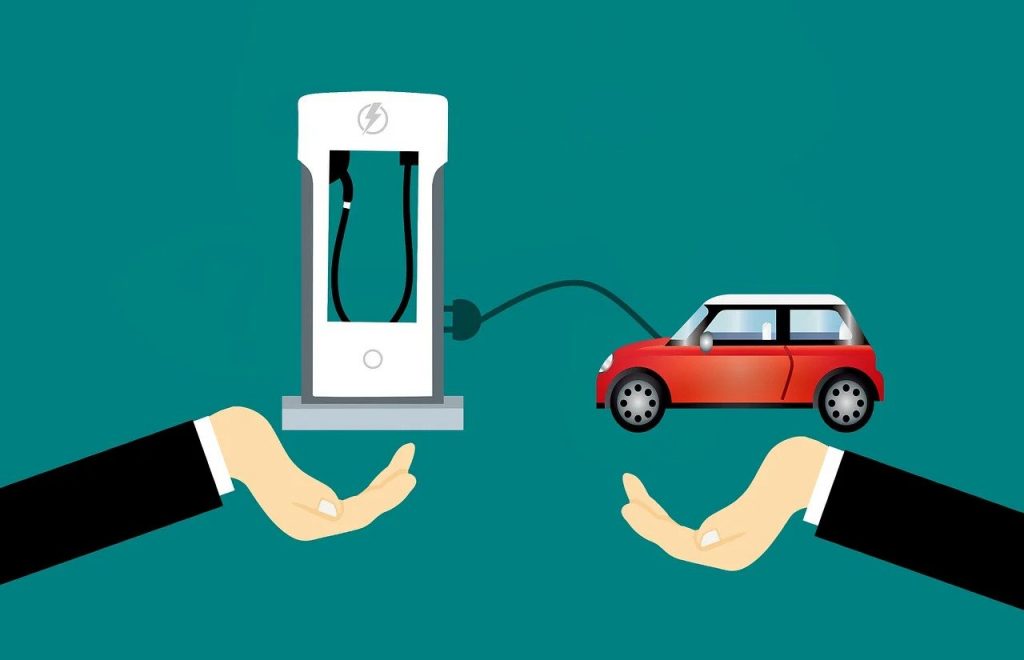Electric vehicles (EVs) are rapidly transforming the automotive landscape, and they offer significant environmental and technological benefits. Moreover, EVs emit zero tailpipe emissions and use renewable energy. However, their advanced components create unique insurance challenges. Furthermore, insurers must adjust their policies to address high battery costs and specialized repairs. Consequently, understanding EV insurance is essential for every owner. Additionally, government incentives encourage EV adoption. Also, telematics and cybersecurity add new dimensions to insurance. Therefore, this article explains EV insurance with detailed insights and clear connectors. Finally, the goal is to help you secure the best policy.
Unique Considerations for Insuring Electric Vehicles

Electric vehicle insurance differs from traditional auto policies in many ways. Firstly, high battery costs drive premiums upward because the battery can represent a large portion of the vehicle’s value. Moreover, replacing or repairing the battery is very expensive, and this risk must be covered by insurers. Furthermore, specialized repair services are required because only certified technicians can handle high-voltage systems. Consequently, fewer repair shops are available, and repair costs may rise. Additionally, advanced connectivity increases cybersecurity risks and influences usage-based premiums. Also, range anxiety leads to specialized endorsements, such as roadside assistance for depleted batteries. Therefore, EV insurance policies are tailored to address battery coverage, specialized repairs, telematics, and cybersecurity. Moreover, rapid depreciation due to technological advances further affects the insured declared value. Finally, insurers must continuously adapt their policies to meet these evolving risks and needs.
Battery Coverage and Its Importance
Battery coverage is one of the most critical elements of EV insurance, and it influences the overall cost significantly. Moreover, the battery is the most expensive component in an EV, sometimes representing up to 40% of the total value. Furthermore, battery replacement costs can reach thousands of dollars, and this expense is factored into premium calculations. Therefore, many insurers now offer specific battery endorsements to mitigate these costs.
Additionally, manufacturers often provide warranties for battery performance, but these warranties may not cover all types of damage. Also, battery degradation may occur unexpectedly, leading to high repair bills if not covered. Consequently, enhanced battery coverage offers a financial safety net that protects against unforeseen expenses. Moreover, advanced battery technology improvements may lower future costs, yet current policies must address high costs. Finally, comprehensive battery coverage is essential to secure an EV investment.
Specialized Repair Requirements for Electric Vehicles
Electric vehicles require repair services that differ significantly from those for traditional cars. Moreover, only specialized repair shops can handle high-voltage systems and advanced electronic components safely. Furthermore, these repair facilities require certified technicians with specific training. Therefore, the limited number of certified shops can increase repair times and costs. Additionally, many repairs demand OEM parts that are more expensive than aftermarket alternatives. Also, the specialized labor required adds to overall repair expenses.
Consequently, insurers must incorporate these higher costs into premium calculations. Moreover, ensuring repairs are done properly preserves vehicle safety and residual value. Therefore, policies that include provisions for specialized repair services provide essential protection. Additionally, this specialized repair coverage helps maintain the vehicle’s performance and longevity. Finally, dedicated EV repair services are a crucial element of comprehensive EV insurance.
Charging Infrastructure and Home Charging Considerations
Electric vehicles rely on a robust charging infrastructure, which influences insurance coverage in various ways. Moreover, many EV owners install home charging stations to charge their vehicles conveniently overnight. Furthermore, these installations are expensive and sometimes require significant electrical upgrades. Therefore, some insurance policies offer endorsements that cover damage to home charging equipment.
Additionally, public charging networks are still developing and may vary in reliability and safety. Also, roadside assistance for charging-related issues is becoming increasingly important. Consequently, some policies now include mobile charging services and extended towing for EVs. Moreover, emergency charging solutions help alleviate range anxiety on long trips. Therefore, comprehensive coverage that includes charging infrastructure is critical for modern EV ownership. Additionally, protecting both the vehicle and the charging equipment enhances overall peace of mind. Finally, insurers must consider these factors to offer well-rounded EV insurance.
Cybersecurity, Telematics, and Usage-Based Insurance
Modern electric vehicles are highly connected and use advanced telematics systems, which influence insurance coverage dynamically. Moreover, telematics systems monitor driving behavior, speed, acceleration, and other metrics that affect risk assessments. Furthermore, insurers use this data to offer usage-based insurance (UBI) programs, which can lower premiums for safe drivers. Therefore, drivers who exhibit low-risk behaviors may benefit from personalized discounts. Additionally, real-time data provides immediate feedback that encourages safer driving practices. Also, increased connectivity exposes EVs to cybersecurity risks such as hacking and data breaches.
Consequently, some insurers now include cybersecurity coverage in their policies. Moreover, robust cybersecurity measures protect both the vehicle and personal data. Therefore, the integration of telematics and cybersecurity into EV insurance offers more accurate risk assessments and potential cost savings. Additionally, usage-based insurance models promote a safer driving culture. Finally, these innovations represent a significant evolution in modern auto insurance.
Addressing Range Anxiety Through Insurance
Range anxiety remains a significant concern for many electric vehicle drivers, and insurance policies now address this issue directly. Moreover, range anxiety is the fear of running out of battery power before reaching a charging station. Furthermore, many policies include specialized endorsements for emergency roadside assistance tailored to EVs. Therefore, if an EV runs out of battery, the policy may cover towing to the nearest charger or mobile charging services. Additionally, some insurers offer extended towing services for long trips.
Also, emergency charging solutions can be included to further reduce driver stress. Consequently, such coverage helps mitigate the psychological impact of range anxiety. Moreover, ensuring timely assistance during emergencies enhances the overall ownership experience. Therefore, specialized range anxiety coverage is essential for peace of mind. Additionally, it encourages more confident use of electric vehicles. Finally, comprehensive range coverage is a key benefit of modern EV insurance policies.
Depreciation, Residual Value, and EV Insurance
Depreciation and residual value are critical factors in the insurance of electric vehicles, and they differ from traditional vehicles. Moreover, rapid technological advances can lead to faster depreciation in EVs. Furthermore, battery health is a major determinant of a vehicle’s residual value. Therefore, the insured declared value (IDV) of an EV may drop quickly over time. Additionally, some insurers offer endorsements that protect against rapid depreciation. Also, protecting residual value is important for future resale or trade-in. Consequently, policies that address depreciation help stabilize premium costs. Moreover, understanding depreciation trends is essential for accurate risk assessments. Therefore, EV owners should seek policies that consider these unique factors. Additionally, careful evaluation of depreciation protection can lead to long-term savings. Finally, comprehensive coverage that accounts for rapid depreciation is beneficial for every EV owner.
Benefits of Insuring Electric Vehicles
Insuring electric vehicles offers several notable benefits that extend beyond mere legal compliance. Moreover, EVs generally have lower maintenance costs because they contain fewer moving parts than gasoline vehicles. Furthermore, reduced maintenance requirements can lead to fewer repair claims and more stable premiums. Therefore, many drivers enjoy lower long-term expenses. Additionally, EVs contribute to environmental sustainability by reducing carbon emissions. Also, government incentives such as tax credits and rebates often support EV ownership. Consequently, these incentives can lower overall costs, including insurance premiums.
Moreover, advanced safety features in EVs help reduce accident severity and lower injury claims. Therefore, the overall risk profile of EVs is improving. Additionally, comprehensive EV insurance provides peace of mind by protecting against high battery and repair costs. Furthermore, tailored policies address unique risks such as cybersecurity and range anxiety. Finally, the combined financial and environmental benefits make EV insurance a smart investment for modern drivers.
Factors Influencing Electric Vehicle Insurance Premiums

Multiple factors influence the premiums for electric vehicle insurance, and these factors are unique compared to traditional vehicles. Moreover, the high purchase price of EVs increases the insured declared value significantly. Furthermore, the expensive nature of battery repairs contributes to higher premium costs. Therefore, replacing or repairing the battery is a major factor in premium calculations. Additionally, the availability of specialized repair services affects overall costs. Also, telematics data and usage-based programs can lower premiums for safe drivers.
Consequently, individual driving behavior is carefully monitored and rewarded. Moreover, location is another important factor, as urban areas generally have higher accident rates and repair costs. Therefore, regional differences in risk and infrastructure affect premium pricing. Additionally, demographic factors such as age and driving experience further influence rates. Finally, market competition and regulatory changes also play a role in determining premiums.
Strategies for Securing the Best EV Insurance Policy
Securing the optimal insurance policy for an electric vehicle requires careful research and strategic planning. Moreover, comparison shopping is essential to find competitive premiums and comprehensive coverage. Furthermore, obtaining multiple quotes from various insurers can reveal the best options available. Therefore, you should not settle for the first quote received. Additionally, bundling policies, such as auto and home insurance, can lead to significant discounts. Also, bundling simplifies policy management and may lower overall costs. Consequently, evaluating policy details carefully is important. Moreover, review all exclusions and endorsements to ensure battery, repair, and cybersecurity coverage are included. Therefore, ask detailed questions when discussing policies with insurers. Additionally, consider using a specialized broker who understands EV insurance well. Furthermore, participating in telematics-based programs can yield extra discounts. Finally, regularly reviewing your policy ensures it stays current with market and technological changes.
Future Trends in Electric Vehicle Insurance
The future of EV insurance is evolving rapidly alongside technological advancements and market growth. Moreover, as battery technology improves, repair costs are expected to decline. Furthermore, improved battery longevity may stabilize depreciation trends and reduce premium volatility. Therefore, insurers will likely offer more competitive rates as technological risks decrease. Additionally, increased integration of telematics and usage-based insurance models will provide more personalized premium calculations. Also, regulatory changes may lead to standardized EV insurance policies that simplify coverage comparisons. Consequently, these developments will benefit both insurers and policyholders. Moreover, cybersecurity coverage is set to become a standard part of EV policies as connectivity increases. Therefore, advancements in AI and big data will enable more precise risk assessments. Additionally, international innovations, such as those emerging in China and Europe, will influence global standards. Finally, the overall trend points toward more tailored, efficient, and consumer-friendly EV insurance options.
Conclusion
In conclusion, insuring electric vehicles requires a comprehensive understanding of unique risks and tailored coverage solutions. Moreover, high battery costs, specialized repairs, and rapid depreciation necessitate specific policy endorsements. Furthermore, advanced telematics and cybersecurity measures offer potential for usage-based discounts and enhanced protection. Therefore, EV insurance policies must address issues such as range anxiety, charging infrastructure, and regional risk factors. Additionally, government incentives and technological advancements contribute to lowering overall ownership costs. Also, careful comparison shopping, bundling policies, and regular policy reviews are essential strategies for securing the best coverage. Consequently, a well-crafted EV insurance policy provides financial protection and peace of mind. Moreover, as the EV market continues to grow, insurers will further innovate and adapt their products. Finally, every EV owner should remain informed and proactive to enjoy a safer, more sustainable driving experience.
Electric vehicles represent the future of transportation, and their insurance must evolve to meet new challenges. Therefore, comprehensive coverage that includes battery protection, specialized repairs, telematics, and cybersecurity is vital. Additionally, addressing range anxiety and rapid depreciation further protects your investment. Moreover, government incentives and technological progress offer additional benefits. Consequently, choosing the right EV insurance policy is a critical aspect of modern electric vehicle ownership. Finally, staying informed about industry trends and regularly reviewing your policy ensures you benefit from the latest advancements. Thus, comprehensive EV insurance not only safeguards your high-tech vehicle but also supports a greener, smarter future on the road.



